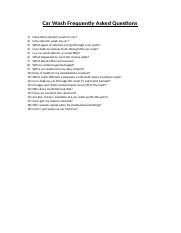
The familiar storefronts of 53rd Street, long a tapestry of local businesses and community staples, are on the verge of a dramatic shift. Whispers have been circulating for weeks, hushed conversations overheard in the local coffee shop and quick exchanges between neighbors on the sidewalk. What was once rumor has now solidified into a concrete plan, a development that has sparked a wave of bewilderment and, frankly, frustration among many residents. Change is inevitable, a constant companion in the life of any urban landscape. But some changes feel less like progress and more like an unwelcome intrusion, a disruption to the carefully cultivated atmosphere that makes a neighborhood feel like home.
The heart of the matter lies in a planned construction project that promises to alter the face of a beloved corner of 53rd Street. While development is often lauded as a sign of economic growth and revitalization, it’s crucial to consider the specific needs and desires of the community it intends to serve. All too often, development projects proceed without genuine community input, resulting in outcomes that benefit developers while leaving residents feeling unheard and disregarded. This sentiment is particularly strong when the proposed development seems entirely out of sync with the existing character of the neighborhood.
The impending arrival of this particular business has raised eyebrows and fueled a sense of collective questioning. Is this really what the neighborhood needs? Were the voices of the residents truly considered in the planning process? These are questions that echo through the streets, carried on the breeze alongside the rustling leaves and the familiar hum of city life. It’s a story of community, change, and the sometimes-turbulent intersection between development and the desires of the people who call 53rd Street home.
The anxiety stems from the nature of the business slated to occupy a prominent space on the street, a location previously held by a long-standing local establishment. The sudden departure of the previous tenant, a beloved bookstore that had served as a community hub for decades, left a void in the hearts of many residents. Now, that void is about to be filled by something entirely different, something that many believe is completely out of touch with the spirit of the neighborhood.
This leads us to the core of the issue: **A Car Wash is Coming to 53rd Because No One Asked For This**. It’s a statement that encapsulates the frustration, the disappointment, and the feeling of being overlooked that permeates the community.
The Unwanted Arrival
A Wash of Disappointment
The initial reaction to the news was disbelief. Surely, there must be some mistake. A car wash on 53rd Street? It seemed incongruous, almost absurd. The street is known for its cafes, boutiques, and bookstores – not a place typically associated with the whirring brushes and soapy water of an automotive cleaning service.
This disbelief quickly morphed into disappointment. Residents expressed concern about the potential increase in traffic, the noise pollution, and the general aesthetic impact on the neighborhood. The charm of 53rd Street, with its carefully curated storefronts and pedestrian-friendly atmosphere, seemed threatened by the prospect of a car wash.
Beyond the practical concerns, there was a deeper sense of disillusionment. The arrival of **A Car Wash is Coming to 53rd Because No One Asked For This** felt like a betrayal of the community’s values. It signaled a disregard for the unique character of the neighborhood and a prioritization of profit over the well-being of the residents.
Many felt that the development was driven by outside forces, with little consideration for the local community. The lack of transparency in the planning process only exacerbated these feelings, leaving residents feeling powerless and unheard.
The disappointment was compounded by the loss of the beloved bookstore, which had been a cornerstone of the community for years. Its departure left a void that a car wash simply couldn’t fill. It was a loss that felt deeply personal to many residents.
The Question of Need
One of the most common refrains heard among residents is the simple question: “Why?” Why a car wash on 53rd Street? Was there a demonstrable need for such a service in the area? The consensus seems to be a resounding “no.”
The neighborhood already has adequate access to car washing services in the surrounding areas. The introduction of yet another car wash seems not only unnecessary but also potentially harmful to existing businesses.
Many believe that the space could have been better utilized to address more pressing needs within the community. A community center, a co-working space, or even another local business would have been far more welcomed and beneficial.
The lack of a clear rationale for the development has only fueled the sense of frustration and bewilderment. It raises questions about the motives behind the project and the priorities of those involved.
Ultimately, the question of need underscores the fundamental disconnect between the developers and the community. It highlights the importance of engaging with residents and understanding their needs before embarking on any development project.
A Matter of Aesthetics
Beyond the practical concerns, the arrival of **A Car Wash is Coming to 53rd Because No One Asked For This** raises concerns about the aesthetic impact on the neighborhood. 53rd Street is known for its unique charm and its carefully curated storefronts.
A car wash, with its bright lights, industrial equipment, and potential for noise and water runoff, is likely to clash with the existing aesthetic of the street. It could detract from the overall appeal of the neighborhood and make it less attractive to residents and visitors alike.
Residents worry that the car wash will create an eyesore and diminish the overall quality of life on 53rd Street. They fear that it will transform a beloved neighborhood into a generic and uninspired commercial area.
The aesthetic concerns are not simply superficial. They reflect a deeper appreciation for the unique character of 53rd Street and a desire to preserve its beauty and charm.
The visual impact of the car wash is a tangible reminder of the changes happening in the neighborhood, changes that many residents feel powerless to stop.
The Loss of Community Hubs
The Bookstore’s Legacy
The departure of the beloved bookstore was a significant blow to the community. It was more than just a place to buy books; it was a gathering place, a hub for intellectual exchange, and a source of community pride. Its shelves were filled with stories, its events brought people together, and its presence enriched the lives of countless residents.
The bookstore hosted author readings, book clubs, and community events, fostering a sense of connection and belonging. It was a place where people could meet, share ideas, and engage in meaningful conversations. The loss of this space has left a void in the community that is difficult to fill.
Many residents recall spending hours browsing the shelves, discovering new authors, and connecting with fellow book lovers. The bookstore was a cherished institution that represented the values of learning, community, and intellectual curiosity.
The bookstore’s absence serves as a stark reminder of the changing landscape of 53rd Street. It symbolizes the loss of local businesses and the increasing homogenization of the neighborhood.
The memories of the bookstore continue to resonate with residents, fueling their desire to preserve the unique character of 53rd Street and resist further unwanted development.
The Importance of Local Businesses
Local businesses are the lifeblood of any community. They provide jobs, generate revenue, and contribute to the unique character of the neighborhood. They are also often deeply invested in the well-being of the community, supporting local causes and sponsoring local events.
The proliferation of chain stores and large corporations can undermine the vibrancy of local businesses and lead to a sense of homogenization. It’s important to support local businesses and protect them from being displaced by larger, more impersonal entities.
The presence of local businesses on 53rd Street has contributed to its unique charm and appeal. They are an integral part of the neighborhood’s identity and play a vital role in fostering a sense of community.
The arrival of **A Car Wash is Coming to 53rd Because No One Asked For This** represents a threat to the local business ecosystem. It signals a shift towards a more generic and less community-oriented environment.
Supporting local businesses is essential for preserving the unique character of 53rd Street and ensuring its long-term viability.
Finding New Gathering Places
In the wake of the bookstore’s departure, the community is actively seeking new gathering places to fill the void. Local cafes, parks, and community centers are stepping up to provide opportunities for people to connect and engage with one another.
Residents are organizing book clubs, community events, and social gatherings to foster a sense of belonging and connection. They are actively working to create new spaces for people to come together and share their experiences.
The loss of the bookstore has served as a catalyst for community engagement. It has inspired residents to take action and create new opportunities for connection and collaboration.
The search for new gathering places is a testament to the resilience and determination of the community. It demonstrates their commitment to preserving the spirit of 53rd Street and fostering a strong sense of belonging.
The community’s efforts to create new gathering places are a positive sign for the future. They offer hope that 53rd Street can continue to thrive as a vibrant and connected neighborhood, despite the challenges it faces.
Environmental Concerns
Water Usage and Runoff
Car washes, by their very nature, consume a significant amount of water. In areas facing water scarcity or drought conditions, this can be a major concern. The efficient use of water and the proper management of wastewater are crucial considerations.
The runoff from car washes can contain detergents, oils, and other pollutants that can harm the environment. It’s important to ensure that car washes have proper drainage systems and that wastewater is treated effectively to prevent pollution.
Residents are concerned about the potential impact of the car wash on the local water supply and the environment. They want to ensure that the car wash operates responsibly and minimizes its environmental footprint.
The environmental concerns related to water usage and runoff are a significant factor in the community’s opposition to the car wash. They highlight the need for sustainable development practices and responsible environmental stewardship.
These worries contribute to the feeling that **A Car Wash is Coming to 53rd Because No One Asked For This** represents a step backwards in the community’s environmental efforts.
Noise Pollution
Car washes can be noisy operations, with the sounds of machinery, vacuums, and car washes echoing throughout the surrounding area. This noise pollution can be disruptive to residents and detract from the overall quality of life.
The constant noise of a car wash can be particularly bothersome during peak hours, when traffic is already heavy and the neighborhood is bustling with activity. It can create a stressful and unpleasant environment for residents.
Residents are concerned about the potential increase in noise pollution resulting from the car wash. They want to ensure that the car wash operates in a way that minimizes noise and respects the peace and quiet of the neighborhood.
The noise pollution concerns are a valid consideration, especially in a densely populated urban environment. They highlight the importance of considering the impact of development on the surrounding community.
The potential for increased noise pollution adds to the list of reasons why the car wash is seen as an unwelcome addition to 53rd Street.
Air Quality
The emissions from vehicles waiting in line at the car wash can contribute to air pollution in the surrounding area. This is particularly a concern in areas with high traffic volume or existing air quality issues.
The idling of vehicles can release harmful pollutants into the air, including carbon monoxide, nitrogen oxides, and particulate matter. These pollutants can have negative health impacts, especially for vulnerable populations such as children and the elderly.
Residents are concerned about the potential impact of the car wash on air quality in the neighborhood. They want to ensure that the car wash operates in a way that minimizes emissions and protects public health.
The air quality concerns are a valid consideration, especially in urban areas where air pollution is already a problem. They highlight the need for development projects to be environmentally responsible and minimize their impact on public health.
The potential for reduced air quality further solidifies the community’s opposition to the car wash.
The Lack of Community Consultation
A Missed Opportunity
One of the biggest criticisms leveled against the developers is the lack of meaningful community consultation. Residents feel that they were not given an opportunity to voice their concerns or provide input on the project before it was approved.
A truly collaborative development process involves engaging with the community early and often, listening to their concerns, and incorporating their feedback into the project design. This ensures that the development meets the needs of the community and minimizes any negative impacts.
The lack of community consultation in this case represents a missed opportunity to create a development that would be both beneficial and welcomed by the residents of 53rd Street.
The failure to engage with the community has created a sense of distrust and resentment. Residents feel that their voices have been ignored and that their concerns have been dismissed.
The absence of a genuine dialogue between the developers and the community has exacerbated the opposition to the car wash and made it more difficult to find common ground.
The Importance of Transparency
Transparency is essential for building trust between developers and the community. Residents have a right to know about proposed developments in their neighborhood and to understand the rationale behind them.
A transparent development process involves providing clear and accurate information about the project, holding public meetings to discuss the plans, and responding to community concerns in a timely and informative manner.
The lack of transparency surrounding the car wash development has fueled speculation and mistrust. Residents have struggled to obtain accurate information about the project and have felt that they are being kept in the dark.
The absence of transparency has made it difficult for residents to understand the developers’ motivations and to assess the potential impacts of the car wash on the neighborhood.
Greater transparency would have helped to build trust and foster a more collaborative relationship between the developers and the community. Instead, the lack of transparency has only served to deepen the divide.
Seeking Future Engagement
Despite the setbacks, the community remains committed to seeking future engagement with developers and city officials. They want to ensure that future development projects are more responsive to the needs and concerns of the residents.
Residents are organizing community meetings, circulating petitions, and contacting elected officials to advocate for greater community involvement in the development process. They are determined to make their voices heard and to ensure that future projects are more aligned with the community’s values.
The community’s efforts to seek future engagement are a positive sign for the future. They demonstrate their commitment to preserving the character of 53rd Street and ensuring that future development benefits the entire community.
The experience with **A Car Wash is Coming to 53rd Because No One Asked For This** has served as a wake-up call for the community. It has inspired them to become more proactive in shaping the future of their neighborhood and to demand greater accountability from developers and city officials.
The community’s determination to seek future engagement is a testament to their resilience and their commitment to creating a more vibrant and equitable neighborhood.
Potential Economic Impacts
Impact on Existing Businesses
The arrival of a car wash on 53rd Street could have a negative impact on existing businesses, particularly those that cater to a similar customer base. The increased competition could lead to decreased revenue and potentially even business closures.
Local businesses rely on the support of the community to thrive. The introduction of a large, impersonal car wash could divert customers away from these businesses and undermine their economic viability.
Residents are concerned about the potential impact of the car wash on the local business ecosystem. They want to support existing businesses and ensure that they can continue to thrive on 53rd Street.
The economic concerns are a valid consideration, especially in a community that values its local businesses. They highlight the importance of considering the impact of development on the existing economic landscape.
The potential for harm to existing businesses is yet another reason why the car wash is seen as an unwelcome addition to the neighborhood.
Job Creation vs. Displacement
While the car wash may create some new jobs, it’s important to consider the potential for job displacement among existing businesses. If the car wash negatively impacts other businesses, it could lead to job losses that outweigh the new jobs created.
It’s also important to consider the quality of the jobs created by the car wash. These jobs may be low-paying and offer limited opportunities for advancement. They may not provide a living wage or adequate benefits for workers.
Residents are skeptical about the economic benefits of the car wash. They want to ensure that any new development creates jobs that are sustainable and provide a decent standard of living for workers.
The job creation vs. displacement issue is a complex one that requires careful consideration. It’s important to assess the overall economic impact of the car wash on the community, not just the number of jobs created.
The potential for job displacement and low-quality jobs adds to the community’s concerns about the car wash.
Property Values
The arrival of a car wash on 53rd Street could potentially impact property values in the surrounding area. Some residents fear that the car wash could detract from the appeal of the neighborhood and lead to a decline in property values.
Property values are an important consideration for homeowners. A decline in property values can have a significant financial impact on residents and can make it more difficult to sell their homes in the future.
Residents are concerned about the potential impact of the car wash on their property values. They want to ensure that their homes remain a valuable investment and that the neighborhood continues to be an attractive place to live.
The property value concerns are a valid consideration, especially in a community with a strong housing market. They highlight the importance of considering the impact of development on the overall value of the neighborhood.
The potential for a decline in property values further strengthens the community’s opposition to the car wash.
Exploring Alternatives
Community-Driven Development
The ideal scenario is one where development is driven by the needs and desires of the community. This involves engaging with residents early and often, listening to their concerns, and incorporating their feedback into the project design.
Community-driven development ensures that projects are aligned with the values and priorities of the neighborhood. It promotes a sense of ownership and fosters a stronger sense of community.
Residents are advocating for a more community-driven approach to development on 53rd Street. They want to have a greater say in the future of their neighborhood and to ensure that future projects are beneficial to the entire community.
The community-driven development model offers a more sustainable and equitable approach to development. It prioritizes the needs of the residents over the profits of developers.
The pursuit of community-driven development represents a positive step towards creating a more vibrant and equitable neighborhood.
Supporting Local Entrepreneurs
Instead of attracting large, impersonal corporations, the community could focus on supporting local entrepreneurs and small businesses. This would help to create jobs, generate revenue, and preserve the unique character of the neighborhood.
Local entrepreneurs are often deeply invested in the well-being of the community. They are more likely to support local causes and to create jobs that provide a living wage for workers.
Residents are advocating for policies that support local entrepreneurs and create a more favorable environment for small businesses. They want to see 53rd Street continue to thrive as a hub for local innovation and creativity.
Supporting local entrepreneurs is a powerful way to build a more resilient and equitable economy. It empowers individuals, strengthens communities, and fosters a greater sense of local pride.
The promotion of local entrepreneurship represents a promising alternative to the current development model.
Preserving Green Spaces
Instead of developing every available space, the community could focus on preserving and expanding green spaces. Parks, gardens, and other green spaces provide numerous benefits, including improved air quality, enhanced aesthetic appeal, and opportunities for recreation and relaxation.
Green spaces can also help to mitigate the effects of climate change by absorbing carbon dioxide and reducing the urban heat island effect. They are essential for creating a more sustainable and livable environment.
Residents are advocating for the preservation and expansion of green spaces on 53rd Street. They want to create a more beautiful and sustainable neighborhood for future generations.
The preservation of green spaces represents a valuable alternative to development. It prioritizes the health and well-being of the community and promotes a more sustainable way of life.
The community’s commitment to preserving green spaces is a testament to their vision for a more sustainable and equitable future. The saga of **A Car Wash is Coming to 53rd Because No One Asked For This** shows why such visions are important.
Conclusion
The story of the car wash on 53rd Street serves as a powerful reminder of the importance of community engagement and responsible development. It highlights the need for developers and city officials to listen to the concerns of residents and to prioritize the well-being of the community over short-term profits. While the immediate future of that particular location might be set, the community’s voice remains strong and committed to shaping a better future for 53rd Street. The spirit of the neighborhood, resilient and determined, will continue to fight for its unique identity and the values it holds dear.
The situation underscores the importance of transparency, community consultation, and a commitment to sustainable development practices. As neighborhoods evolve, it’s crucial that changes reflect the needs and aspirations of the people who live there, not just the desires of outside interests. The fight for 53rd Street is a microcosm of a larger struggle taking place in communities across the country, a struggle for control over the future of our neighborhoods and the preservation of local identity.
This isn’t just about a car wash; it’s about the soul of a neighborhood. It’s about preserving what makes a community unique and ensuring that development benefits everyone, not just a select few. It’s a call to action, urging residents to become more involved in the planning process and to demand greater accountability from developers and city officials. The future of 53rd Street, like the future of any community, depends on the active participation and unwavering commitment of its residents.
The outcome of this situation remains to be seen, but one thing is clear: the community of 53rd Street will not be silenced. They will continue to fight for their vision of a vibrant, equitable, and sustainable neighborhood, one that reflects the values and priorities of the people who call it home. They will strive to ensure that future developments are more responsive to the needs of the community and that the unique character of 53rd Street is preserved for generations to come.
We hope you found this article informative and thought-provoking. For more stories on community development, local issues, and the challenges facing neighborhoods across the country, be sure to check out our other articles.
- Disappointment
- Lack of Need
- Aesthetic Concerns
- Loss of Community Hub
- Environmental Impact
- Lack of Consultation
- Potential Economic Impact


